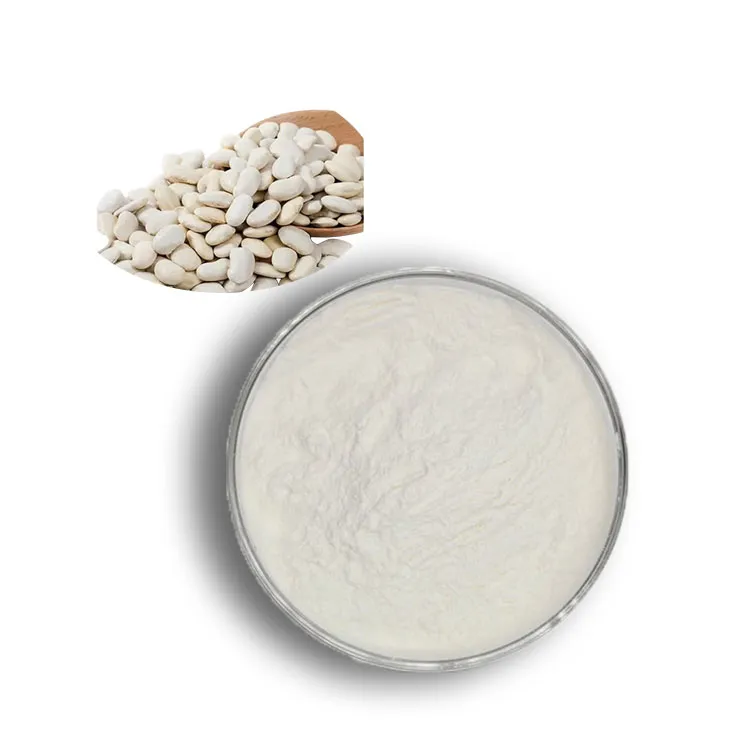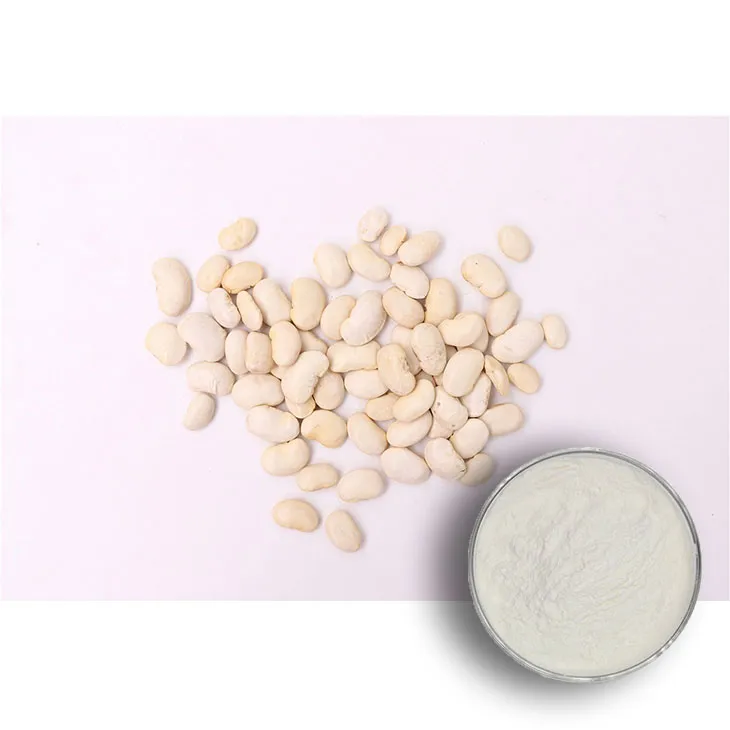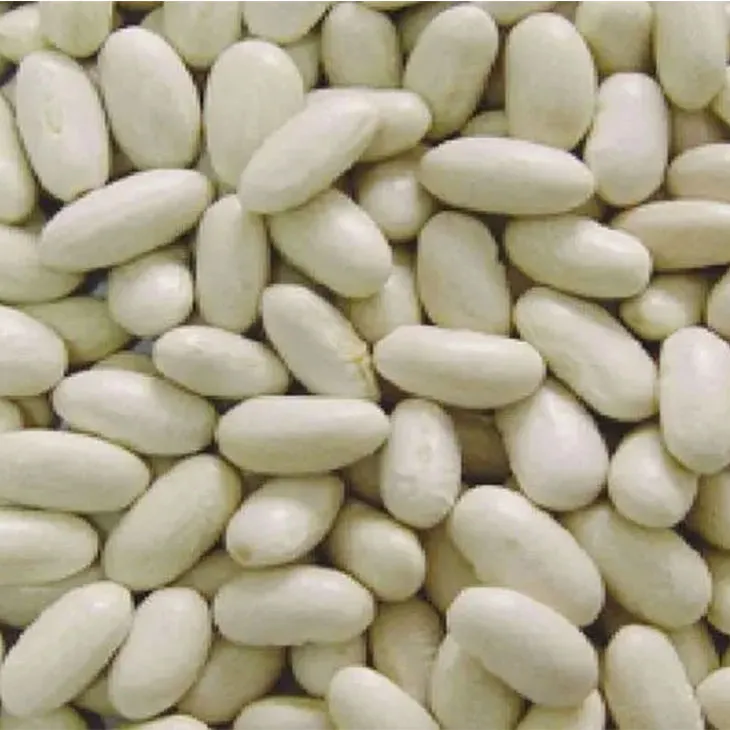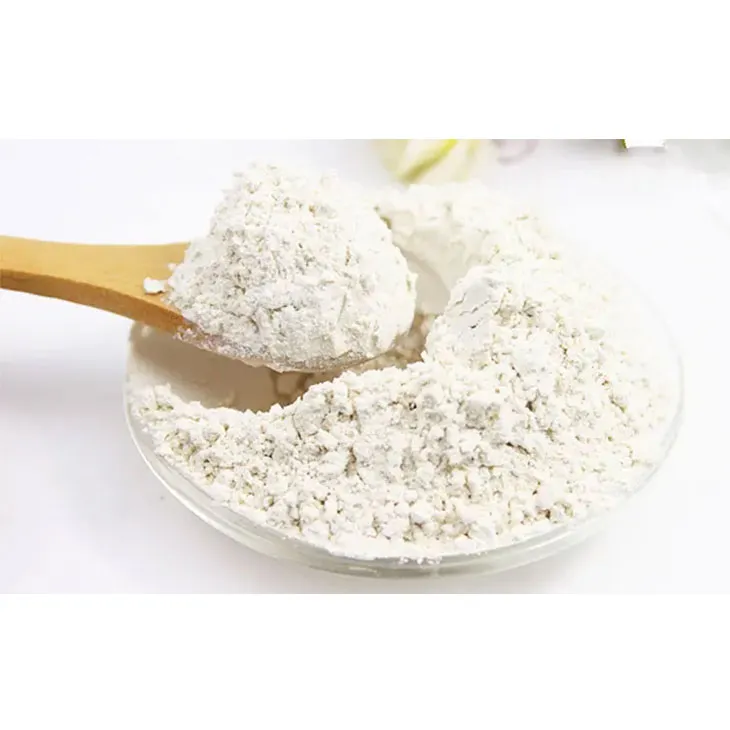- 0086-571-85302990
- sales@greenskybio.com
Benefits of Kidney Bean Extract in Cattle Feed.
2024-11-11

1. Introduction
In the realm of cattle farming, the quality of feed plays a crucial role in determining the overall health and productivity of the cattle. Kidney Bean Extract has emerged as an interesting addition to cattle feed with a host of potential benefits. This article will explore in detail the various advantages that Kidney Bean Extract can offer when incorporated into cattle feed.

2. Improving Cattle Product Quality
2.1 Enhanced Nutritional Value of Beef and Milk
One of the significant benefits of Kidney Bean Extract in cattle feed is its potential to improve the quality of cattle products, particularly beef and milk. Kidney beans are known to be rich in various nutrients such as proteins, vitamins, and minerals. When these nutrients are transferred through the feed to the cattle, they can have a positive impact on the nutritional composition of the beef and milk produced.
For example, the proteins present in the kidney bean extract can contribute to an increase in the protein content of beef. This is important as consumers are increasingly conscious about the nutritional value of the food they consume. Higher - protein beef is not only more nutritious but also commands a better market value. Similarly, in milk, the presence of certain vitamins and minerals from the kidney bean extract can enhance its nutritional profile, making it a more valuable product.
2.2 Taste Improvement
In addition to enhancing the nutritional value, kidney bean extract may also improve the taste of beef and milk. The unique combination of compounds present in the extract can influence the flavor of the end products. This is likely due to the presence of certain flavor - enhancing substances in kidney beans or their interaction with the cattle's physiological processes that affect the flavor development in beef and milk.
For instance, some studies suggest that certain components in kidney bean extract can modify the fat composition in beef, which in turn can affect its taste. In the case of milk, the extract may contribute to a more pleasant and distinct flavor, which can be appealing to consumers. This improvement in taste can lead to increased consumer acceptance and preference for products derived from cattle fed with kidney bean extract - containing feed.

3. Physiological Regulation in Cattle
3.1 Metabolism Regulation
Kidney bean extract has the ability to regulate the metabolism of cattle, which is of great significance for their well - being. Metabolism is a complex set of chemical reactions that occur within the body to maintain life. By influencing the metabolic processes, the extract helps in ensuring that the cattle's body functions optimally.
For example, it can play a role in carbohydrate metabolism. It may help in the proper breakdown and utilization of carbohydrates, providing the necessary energy for the cattle's daily activities. Additionally, in lipid metabolism, the extract can assist in the regulation of fat storage and mobilization. This is important as excessive fat deposition can lead to health problems in cattle, while insufficient fat can also be detrimental.
Moreover, the extract can also impact protein metabolism. It can promote the synthesis of new proteins, which are essential for growth, repair of tissues, and the production of enzymes and hormones. By maintaining a balanced protein metabolism, the cattle can grow and develop in a healthy manner.
3.2 Maintaining a Stable Internal Environment
Another aspect of physiological regulation by kidney bean extract is the maintenance of a stable internal environment. Cattle, like all living organisms, require a relatively constant internal environment for their normal physiological functions to occur. The extract helps in achieving this stability in various ways.
For instance, it can regulate the body's pH levels. Fluctuations in pH can disrupt many physiological processes, but the components in the kidney bean extract can act as buffers, preventing excessive changes in pH. This is important in the digestive system, where a proper pH is required for the efficient breakdown of feed and absorption of nutrients.
The extract can also play a role in maintaining the water - electrolyte balance in the cattle's body. Electrolytes such as sodium, potassium, and chloride are essential for nerve conduction, muscle contraction, and other physiological functions. Kidney bean extract can help in regulating the levels of these electrolytes, ensuring that they are within the normal range.

4. Acting as a Natural Antioxidant
4.1 Neutralizing Free Radicals
The kidney bean extract in cattle feed can act as a natural antioxidant. Free radicals are highly reactive molecules that are constantly formed in the body as a by - product of normal metabolic processes. However, an excessive amount of free radicals can cause oxidative stress, which is harmful to the cells and tissues of the cattle.
The antioxidant components in the kidney bean extract can neutralize these free radicals. They do this by donating an electron to the free radical, thereby making it less reactive. This process helps in reducing the oxidative stress in the cattle's body.
4.2 Protecting Cells and Tissues
By neutralizing free radicals, the kidney bean extract protects the cells and tissues of the cattle from damage. Oxidative stress can lead to a variety of problems such as cell membrane damage, DNA mutations, and reduced function of organelles.
In the case of cattle, protecting the cells and tissues is crucial for their long - term health. It can prevent diseases related to oxidative damage, such as certain types of liver and muscle diseases. Additionally, healthy cells and tissues are also essential for the normal growth and productivity of the cattle.

5. Conclusion
In conclusion, kidney bean extract offers a multitude of benefits when included in cattle feed. It has the potential to improve the quality of cattle products in terms of both nutrition and taste. From a physiological perspective, it can regulate metabolism and maintain a stable internal environment, which are vital for the normal functioning of cattle. Moreover, as a natural antioxidant, it can protect the cells and tissues of cattle from oxidative damage, ensuring their long - term health. Incorporating kidney bean extract into cattle feed can be a promising strategy for cattle farmers to enhance the overall quality and productivity of their herds.
FAQ:
Question 1: How does kidney bean extract improve the nutritional value of beef?
Kidney bean extract may contain certain nutrients or bioactive compounds that can be transferred to the beef. These components might influence the composition of muscle tissue, for example, by increasing the content of essential amino acids or healthy fats, thereby enhancing the overall nutritional value of beef.
Question 2: Can kidney bean extract really affect the taste of milk?
Yes, it is possible. The extract may introduce unique flavors or modify the existing flavor profile of milk. It could also affect the metabolism of the cows in a way that leads to changes in the milk composition, which in turn can influence its taste.
Question 3: What is the mechanism by which kidney bean extract regulates cattle metabolism?
The extract may contain substances that interact with the endocrine system or enzymes in the cattle's body. For example, it could stimulate or inhibit certain metabolic pathways by affecting hormone levels or enzyme activities, thus regulating the overall metabolism.
Question 4: How does the antioxidant property of kidney bean extract protect cattle cells?
As an antioxidant, the kidney bean extract can donate electrons to free radicals. Free radicals are highly reactive molecules that can cause damage to cells by stealing electrons from important cellular components. By neutralizing these free radicals, the extract helps prevent oxidative damage to cells and tissues, ensuring their proper function and integrity.
Question 5: Are there any potential side effects of using kidney bean extract in cattle feed?
While kidney bean extract has many benefits, improper use or excessive amounts may potentially cause side effects. For example, it could disrupt the normal balance of nutrients if not properly formulated in the feed. However, with proper research and controlled application, these risks can be minimized.
Related literature
- The Role of Plant Extracts in Animal Nutrition"
- "Beneficial Effects of Natural Extracts in Livestock Feed"
- "Kidney Bean Extract: Composition and Potential Applications in Agriculture"
- ▶ Hesperidin
- ▶ Citrus Bioflavonoids
- ▶ Plant Extract
- ▶ lycopene
- ▶ Diosmin
- ▶ Grape seed extract
- ▶ Sea buckthorn Juice Powder
- ▶ Fruit Juice Powder
- ▶ Hops Extract
- ▶ Artichoke Extract
- ▶ Mushroom extract
- ▶ Astaxanthin
- ▶ Green Tea Extract
- ▶ Curcumin
- ▶ Horse Chestnut Extract
- ▶ Other Product
- ▶ Boswellia Serrata Extract
- ▶ Resveratrol
- ▶ Marigold Extract
- ▶ Grape Leaf Extract
- ▶ New Product
- ▶ Aminolevulinic acid
- ▶ Cranberry Extract
- ▶ Red Yeast Rice
- ▶ Red Wine Extract
-
Red Wine Extract
2024-11-11
-
Milk Thistle Extract
2024-11-11
-
Hericium erinaceus extract powder
2024-11-11
-
Kidney Bean Extract
2024-11-11
-
Alisma Extract
2024-11-11
-
Berberis aristata Extract
2024-11-11
-
Giant Knotweed Extract
2024-11-11
-
Diosmin
2024-11-11
-
Moringa powder
2024-11-11
-
Horse Chestnut Extract
2024-11-11




















